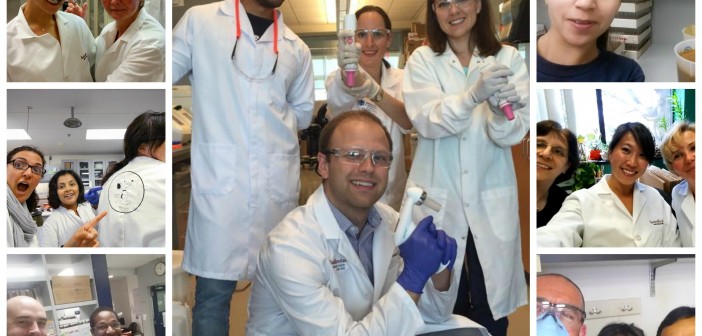Eric Preston Dudl
October 22, 1972 – August 30, 2006
The Eric Dudl Scholarship was established at Sanford Burnham Prebys to remember a very special young man that dedicated his life to helping others.
Eric passed away peacefully in his father’s arms succumbing to a cancer that could not be stopped by any known medical treatments. He was caring to the end; the last thoughts were unselfishly for his work, family and dear girlfriend Lilia. Eric was a loveable child with a quick wit and incredible intellect. He grew up in La Jolla, graduating from La Jolla High School in 1990. He went on to earn a degree in biochemistry from the University of Illinois in 1994. He chose to continue his education at the University of Southern California where he was awarded a PhD in biochemistry and immunology in 2005.
He had just begun a Postdoctoral Fellowship at Sanford Burnham Prebys following his passion for cancer research. Eric published several research papers focusing on cancer at the cellular level. It was his wish that he could contribute lasting research that would save lives. Cancer did not stop Eric from going to work every day when he was out of the hospital. His courage in the face of pain was a source of wonder to his family and friends. Eric set his goals and standards high and achieved them in spite of great difficulties. He had a love of things intellectual, humorous, philosophical and political. The last few months of his life were filled with love, family, laughter and soccer. Our family was able to travel to the 2006 World Cup in Germany in June where he attended a match. He said it was the best trip of his life.
Eric is survived by his father and mother, Robert James and Barbara Dudl; his brother, Bret; the Jasso, Gonzalas, and Diaz families, and the love of his life Lilia Castro. He will be missed by many more family members, collogues and friends. Eric was, is, and always will be our wonderful, brave, intelligent, fun, funny, loving, caring, big-hearted, son who loved and cared about all of you and us. We will miss him dearly and he will live on in our thoughts forever.
Love,
The Dudl Family
It is the refusal to beg for what will never be given again.
It is loving life even in the face of death.
It is embracing family and friends even when we fear to lose them.
It is opening ourselves to love, even for the last time.
Courage is Self-Esteem.
It prefers quiet determination to whining.
It prefers doing to waiting.
It affirms that exits, like entrances, have their own dignity.
Donate to make a gift to the Eric Dudl Scholarship Fund. Eric’s family will be notified of your generosity, but the amount of your gift will not be shared.


